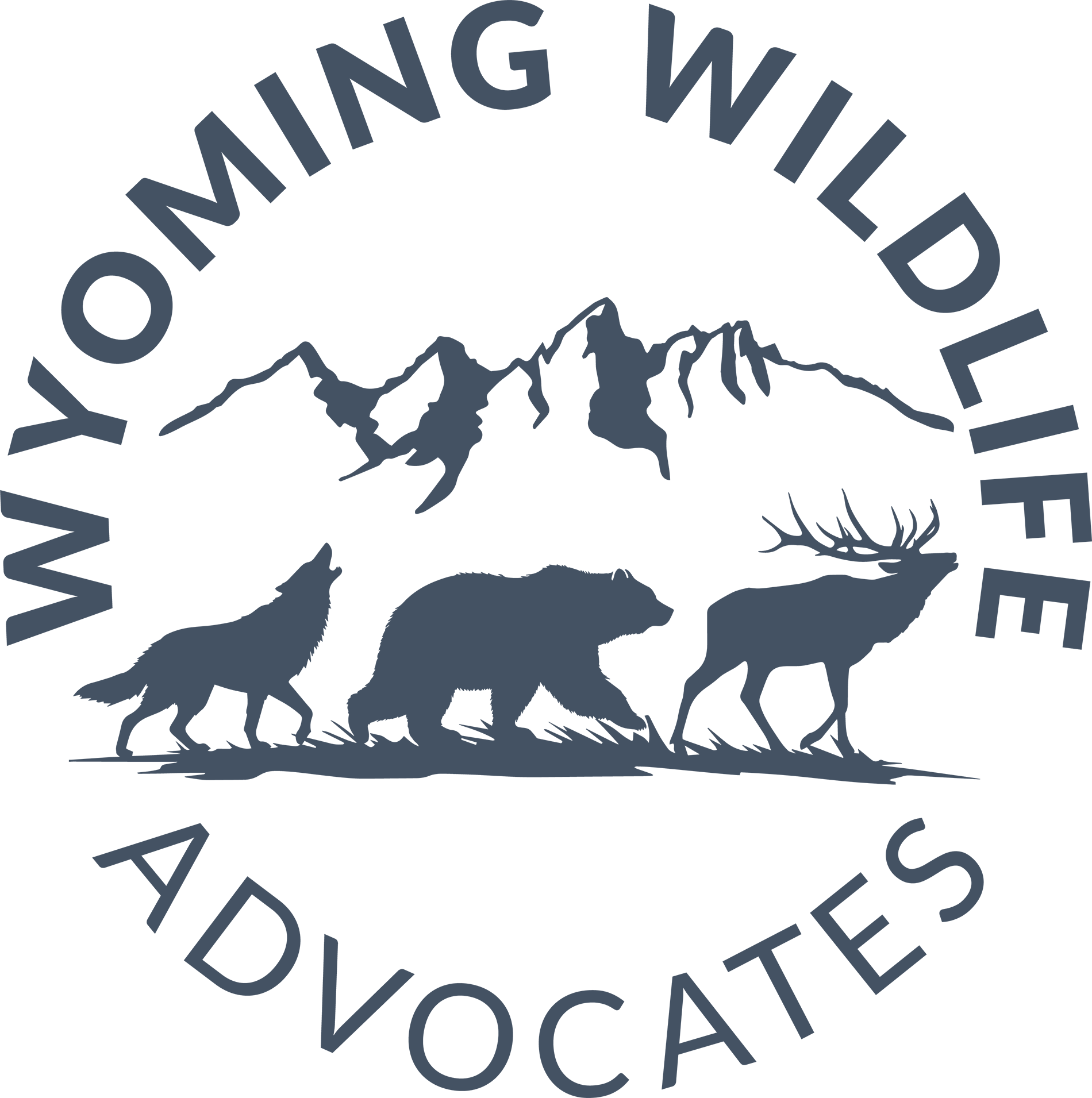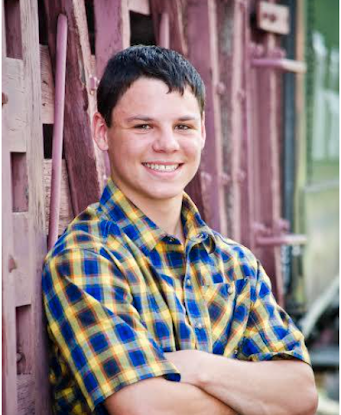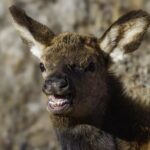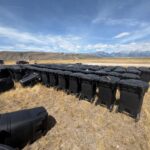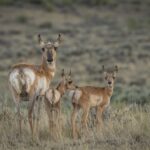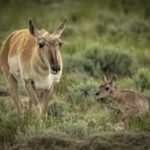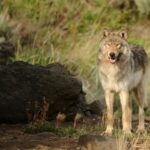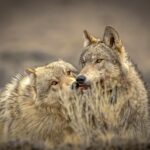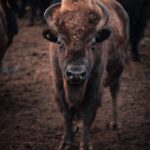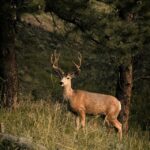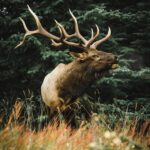We are delighted to highlight our AmeriCorps service member for winter/spring 2021. Andrew Miller is a University of Wyoming graduate with a degree in geology and geohydrology. He currently lives in Laramie, Wyoming, but grew up near Denver. We have greatly enjoyed and appreciated the time Andrew has spent with us the past couple of months. Andrew has taken on various projects including constructing an interactive grizzly bear conflict map, delving deep into the Wyoming Wildlife Services Environmental Assessment for predator control operations, assisting with social media, attending and presenting at meetings, and many more important tasks that have been very helpful to our operations.
I recently sat down with Andrew to get his thoughts on his time with WWA and where he is going in the future. Read on to learn more about this amazing future leader!
- What drew you to the AmeriCorps program?
Preparing to begin a graduate degree studying the hydrothermal fields in Yellowstone National Park, I wanted to find a way to engage with the community directly impacted by that place. I believed the AmeriCorps program through Teton Science Schools (TSS) would give me the best opportunity to learn about the issues important to this community beyond just moving there which was not a realistic opportunity for me. I am interested in finding better ways to educate people about the world they live in and education is a large part of the mission of Teton Science Schools.
- What is it about the Greater Yellowstone Ecosystem that interests you? Why did you choose this place to serve?
The Greater Yellowstone Ecosystem is one of the most unique environments in the world; from the geology to how the land is used and has been set aside. I came in with a decent understanding of the geology of the GYE but understood there was more to this place than the rock that makes it up. I wanted to gain a better understanding of the people and wildlife who call this place home. The wildlife here is unique as it has a large diversity of predators and prey, more so than most other ecosystems. Millions of people travel each year to the GYE to view the wildlife, but the locals as well as some visitors come into conflict with wildlife. Working with WWA and TSS has given me insight to the complex dynamics taking place between humans and wildlife.
- What have you learned about wildlife issues in Wyoming so far that has surprised you?
I think the biggest thing that I have learned about wildlife issues in Wyoming that has surprised me is how quick the state and people are to put restrictions on wildlife and then keep wildlife populations at the minimum necessary.
- What knowledge will you take with you from this experience that will help you in your career and/or conservation efforts?
Immediate knowledge I will take from this experience going forward is how to be more cautious and aware of the wildlife when doing geology field work in Yellowstone National Park and more generally Wyoming. If I can make the work and fieldwork I do be less stressful and impactful on the wildlife in the area, I want to do that and much of the work I have done at WWA has given me strategies towards accomplishing this goal. I will also take away a better understanding of how conservation works. There are many groups like WWA that put in the hard work battling for wildlife and wilderness but without the support and involvement of general public, all their work can seem and feel fruitless. I plan to just be involved in what ever way I can going forward to continue to support these conservation efforts that are important to me to help them succeed.
- What has been the most rewarding part of your service?
The most rewarding part of my service has been the relationships I have been able to build with the many people I have met and the work I have been able to do for WWA. Although maybe minor in some ways, I am excited to have the opportunity to help WWA in their efforts to help people understand the wildlife issues we face and make a change to preserve these species existence in the world we share with them.
- What are you interested in doing for a career? Where do you see yourself in 10 years?
As a career, I hope to use the natural isotopes of different elements in ground water to understand where contamination is coming from. Water is such a precious resource here in the west, I want to make sure we do not destroy that necessity through our industry or personal activities. Understanding where contamination is coming from when it does happen is key to being able to clean up the mistakes we make and hold the correct people accountable if it is not a natural occurrence. I would also like to continue to do research on hydrothermal systems in Yellowstone and around the world as it is significant for tourism, life (abiotic and biotic), and is the source of many important mineral deposits that are mined to make the tools and technology we have today possible. I do not know what location I will be in 10 years as I am open to going wherever my career will take me. But I would love to remain in Wyoming and just hope to be doing what I love.
- Your AmeriCorps service is a little different than you expected due to the pandemic. What has been a pleasant surprise or something you were not expecting that you’ve experienced with your term of service with WWA?
I knew coming in most of my time would be spent with my community partner (WWA) doing projects and helping in what ever ways I could. I was not expecting the time I spent with WWA would involve being a part of different meetings with colleagues and others discussing what steps need to be taken moving forward on issues. The opportunities to be a part of these meetings has been greatly beneficial to me in understanding how problem solving can take place. Seeing the advocacy work WWA does has given me much more respect for the work they do and has allowed me to better understand the challenges one faces in trying to help educate and spread useful information to those seeking it.
- After learning about wildlife issues in Wyoming, what advice would you have for anyone who would like to get involved in educating themselves further?
For anyone wanting to learn more, the advice I would give comes in two parts. First, understand generally the science of what the needs are for the species involved. Learn about how they are impacted by other species and how they impact species. An ecosystem is a complex and tangled net of effects each species has on one another. Once you gain an understanding of the science involved in the issue look to the stakeholders involved. Specifically, try to understand the motivations of each side. Once you understand the fullness of the issue, it is much easier to have compassion for the people who are for or against it. Compassion is important because many people involved may not have a full understanding of what is going on but are reacting to how they may be affected. Understanding where they are coming from allows for conversation for how these changes can be good and can open dialogue that does not just accuse one side of being right or wrong but looks for a compromise between the two or more sides.
- What hope do you have for the future for wildlife conservation? Do you think humanity will be able to turn things around before many more species are extinct?
I believe people are beginning to understand the world is far more integrated than we think. Our actions of direct consequences on the wildlife around us as well as around the globe. I believe the younger generations are increasingly aware of this and that many people are willing to make the changes necessary to help with the survival of wildlife. This willingness to enact change and change of mindset towards the world by younger generations gives me hope. There are many great things happening in wildlife conservation, especially in the United States. But if this success is to continue, we need to come together as a people to make change. Grizzly bears and gray wolves have made comebacks in Wyoming, but not without struggle. There is a balance between human activity and thriving species and ecosystems, but we need to be on the same page to accomplish these goals. An individual can have a large impact on the success of conservation but an even larger impact against conservation depending on the actions they take. Continuing to educate people on the importance of these species and coming to them with compassion and understanding of the fears they have can hopefully have lasting affects that will help turn around things before our impact is beyond repair.
We are sincerely thankful to Andrew for all his insights and hard work throughout his service with us. We wish him all the best in the future. Andrew will be starting his graduate degree in geohydrology this fall at the University of Wyoming. We have a feeling that this isn’t the last we’ve seen of this incredible young man. Thanks Andrew!
